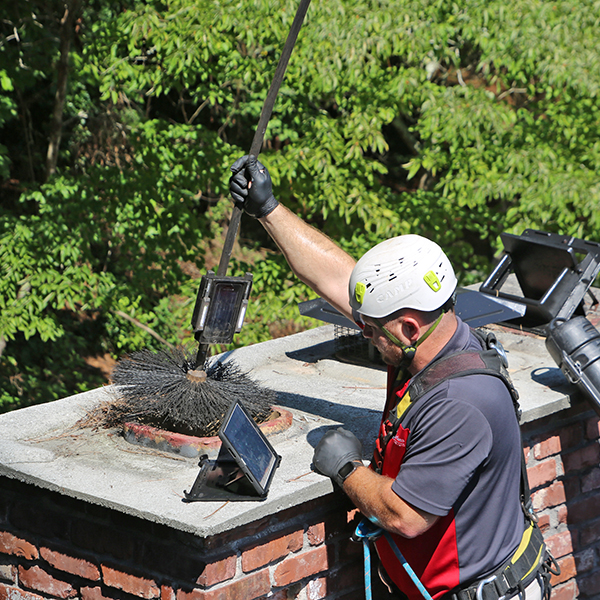When it comes to maintaining a safe and healthy home, chimney care is often overlooked until something goes wrong. Yet, just like any other system in your home, chimneys need regular inspection and maintenance to function efficiently and safely. A professional chimney inspection company plays a vital role in keeping your fireplace, flue, and entire venting system in top shape. But what exactly should a homeowner expect during one of these inspections? Let’s break it all down so you know exactly what you’re signing up for and why it’s worth it.
The Importance of Chimney Inspections
Over time, chimneys accumulate creosote, debris, soot, and even bird nests. If left unchecked, these blockages can increase the risk of chimney fires, carbon monoxide leaks, and poor air quality inside your home. A routine inspection helps detect issues early on, long before they turn into costly repairs or dangerous hazards.
Additionally, chimney inspections can ensure your system complies with local building codes, especially if you’re buying or selling a home.
Levels of Chimney Inspection
The National Fire Protection Association (NFPA) has established three levels of chimney inspections:
- Level 1: A basic inspection for systems that haven’t changed and have no known issues.
- Level 2: Required when changes have been made to the system (like switching fuel types), or after a natural disaster like an earthquake or major storm.
- Level 3: Involves removing parts of the chimney or surrounding structure to investigate serious hazards.
Most homeowners will only ever need a Level 1 or Level 2 inspection unless a significant structural issue arises.

What Professionals Look For
Once a certified technician arrives for your scheduled inspection, here’s what they typically assess:
- Creosote Buildup: Flammable residue that accumulates with wood burning.
- Blockages: Animals, leaves, or soot that may be obstructing airflow.
- Structural Integrity: Cracks in the flue liner or mortar joints that could cause leaks or collapse.
- Moisture Damage: Signs of water intrusion, mold, or rust inside the chimney system.
- Fireplace and Damper Condition: Making sure all components are functioning properly.
A professional from a chimney inspection company in Washington, DC, will use specialized equipment such as cameras, smoke pellets, and moisture meters to ensure nothing is overlooked. This high level of attention to detail gives homeowners peace of mind, knowing their chimney is in capable hands.
Red Flags That Signal You Need an Inspection
Sometimes, it’s obvious. You light a fire, and smoke fills the room. Other times, the warning signs are subtle. Here are some indicators that it’s time to call in a pro:
- Unusual odors when the fireplace is not in use
- Difficulty starting or maintaining a fire
- Pieces of tile or debris falling into the hearth
- Excessive soot around the firebox
- Water stains or leaks near the chimney
Ignoring these symptoms can lead to safety hazards and costly structural damage down the road.
Inspection vs. Cleaning
A chimney inspection is different from a cleaning. Inspections assess the overall condition of the chimney system, while cleanings remove soot, creosote, and blockages. In many cases, both are done together, especially if the inspection reveals a significant buildup of debris. Hiring a chimney inspection and repair company ensures that any issues identified during the inspection can be addressed promptly, whether that means a simple cleaning or a more detailed repair.
What Happens After the Inspection?
After the inspection, you’ll get a detailed report with photos, recommendations, and cost estimates. This documentation is useful for maintenance planning and real estate needs. Many companies also offer maintenance plans or seasonal check-ins to keep chimney care on track.
Don’t Wait Until It’s Too Late
Waiting for chimney problems to appear can be risky and costly. Whether you use your fireplace often or only occasionally, regular inspections help prevent fires, maintain air quality, and prolong the chimney’s life. With weather changes and natural wear, having certified professionals inspect it regularly should be a key part of your home maintenance plan.
Choose the Right Team for the Job
Chimney inspections require training, certification, and the right tools. Look for companies that are licensed, insured, and accredited by professional bodies like the Chimney Safety Institute of America (CSIA). A trustworthy company will always be transparent about its process, offer clear pricing, and provide thorough documentation. For those who value long-term safety and efficiency, choosing a reputable provider can make all the difference.
Final Thought
Scheduling a chimney inspection might feel like a small chore, but it carries big weight when it comes to your household’s safety and comfort. By taking a proactive approach to chimney maintenance, you’re not just protecting your home; you’re safeguarding your family and peace of mind. Johnson Chimney Services ensures your chimney care is handled with precision and professionalism, so if an inspection is overdue or you simply want to stay ahead of the season, now’s the ideal time to act.



